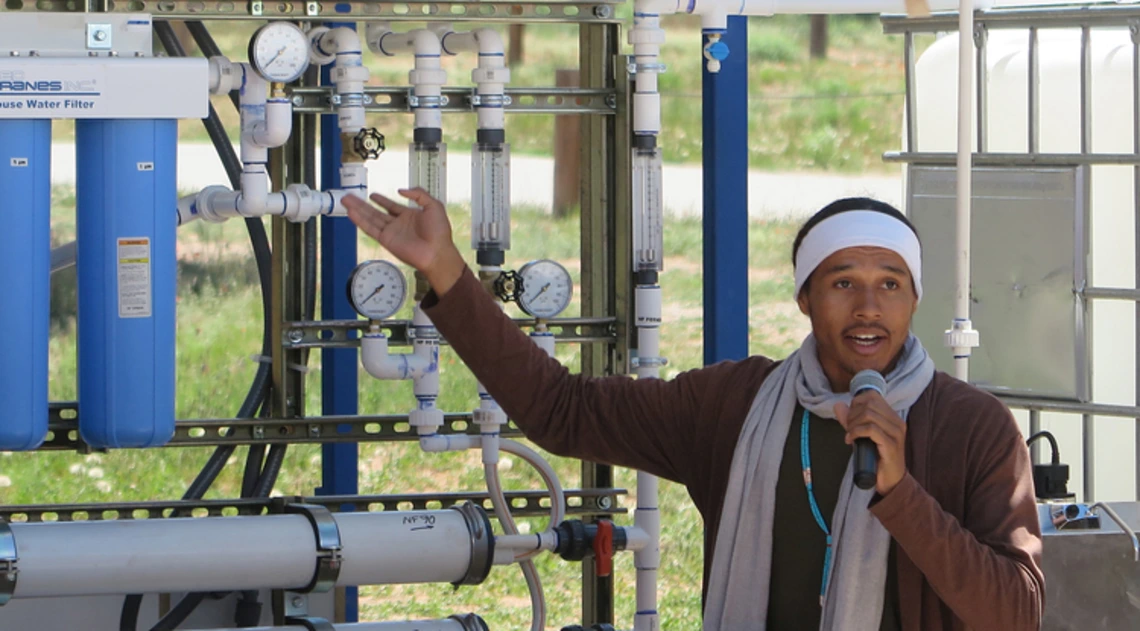Tackling Sustainability Challenges on the Navajo Nation

A team of UA faculty members and graduate students, including MSE assistant professor Erin Ratcliff, have joined forces with undergraduates on the Navajo Nation to design a solar-powered water filtration system that can provide 50 gallons of safe, clean water to 30 Navajo families per day.
The goal of this unprecedented collaboration between the UA and Diné College, which serves a predominantly Navajo student population, is to teach the next generation of STEM professionals how to confront food, energy and water challenges among indigenous communities while letting traditional values guide their work.
The project – called Indigenous Food, Energy and Water Security and Sovereignty, or Indige-FEWSS – combines research internships, teaching and cultural immersion.
"Trainees in the Indige-FEWSS program are not doing research to be put on the shelf, but we're doing research to have real impact and solve real problems that our community has," said Karletta Chief, associate professor of environmental science, who is leading the project.
Indige-FEWSS is supported by a $3 million award from the National Science Foundation.
